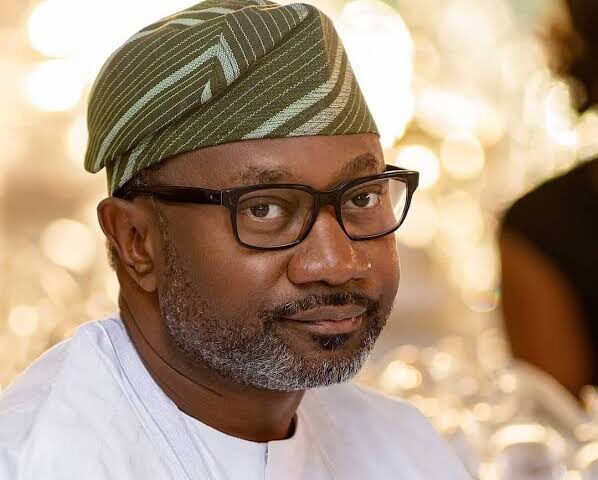Chief Executive Officer of the Centre For Promotion of Private Enterprise (CPPE), Dr Muda Yusuf, has called on the Central Bank of Nigeria (CBN) and other fiscal authorities in the country to make policies that would favour an increase in domestic investments to boost the economy.
Dr Yusuf said the government needs to create a conducive environment for businesses that are generating revenue for the government to thrive.
He said if businesses continue to face the challenges they are currently facing, the revenue outlook for the government may not be as bright as expected, adding that people need to be in business and also doing well to be able to pay taxes.
Dr Yusuf made the call while speaking in an interview on Channels Television Sunrise Daily show on measures to fix the economy, especially as the new CBN governor, Dr Olayemi Cardoso, assumes office.
Join our WhatsApp Channel
Cardoso had during his confirmation alongside four deputy governors by the Senate on Tuesday, September 26, promised to stabilize the naira against stronger foreign currencies, like Dollar, Pound, and Euro among others; prioritise clearing the apex bank’s backlog of unsettled foreign exchange obligations, and also implement other immediate and long-term measures to reposition the bank and help the economy.
On what the government needs to do in the immediate term to ease the economic stress on people as a result of high inflation rate, and exchange rate crisis, the economic expert called on the authorities to review fiscal policy Instruments, particularly in the area of import duty, by way of reducing what people pay, especially those in critical productive sectors of the economy in addition to other medium to long-term measures of trying to reduce money supply, curbing insecurity, and ensuring constant electricity supply among others.
According to him, import duties are still very high. “When you have a high import duty and you have a very weak exchange rate, it’s a double whammy. On top of that, you have high energy costs.
READ ALSO: CBN: Cardoso Vows To Defend Autonomy Against Political Influence
“So, if you cannot control the energy costs because these are external variables, somethings that are external to our environment, at least we can control our import duty, especially that of critical raw materials, import duty of critical inputs that people are using for production. I think that is one of the quick things that we need to do.”
He said the authorities should not be too focused on generating revenue to the extent that the system is suffocated.
While noting that it is good to attract foreign investors, he emphasized that more focus should be given to encouraging domestic investors by addressing their concerns which impede investments in the economy.
He said that to tackle inflation, there is a need to create an enabling environment to boost the supply side of the economy and increase productivity, and on the monetary, have control over the rate at which CBN is printing money.
Speaking on factors that affect productivity, Dr Yusuf said that apart from the interest rate (which is currently at 18.75 per cent), there are other bigger issues which include high energy costs such as the skyrocketing price of diesel used by companies to power their generating sets for electricity. Diesel is currently sold at N1,100 per litre.
“Interest rate is an issue but there are other bigger issues affecting productivity.
Right now, diesel price is currently over N1000 Naira per litre. You can imagine the implication of that for productivity in an economy where in the last one or two months we have been seeing frequent collapses of the national grid. Imagine the implication of that for the costs of production.
“Some businesses are already even packing up. How do you deal with a situation where you have a very serious challenge with the cost of energy, and you have a very serious challenge with foreign exchange? Not many businesses can survive that for long,” he stated.
He said that as part of measures to stabilize the naira, the CBN Governor should look at existing policies and remove barriers to diaspora remittances and other foreign inflows into the economy.
He said the CBN needs to clear backlogs that are up to $10 billion to restore confidence in the system.
He added that the country has potential both in terms of human and material resources to boost the economy if the right things are done.
“We have the resources everywhere, most of our resources are not optimally utilized. We are not capturing value the way we should capture value, it is feasible if we do the right things,” he said.
Dwelling further on energy costs, the former Director General of the Lagos Chamber of Commerce and Industry (LCCI), called on the government to urgently address the challenge of power supply across the country to reduce costs for businesses. Public power supply, he said, is cheaper than the use of diesel and fuel in power generators and is also much more environment friendly.
“If we have a steady power supply, why would people be relying on diesel for production; why would people be relying on PMS to power their generators and all of that? So, we should prioritise power supply,” Dr Yusuf advised.
He stressed that the issue with the power sector cannot be left entirely for the private sector to manage because it is a developmental issue that significantly affects productivity, hence the need for the government to make fundamental interventions in the sector.
Victor Ezeja is a passionate journalist with seven years of experience writing on economy, politics and energy. He holds a Master's degree in Mass Communication.




















Follow Us